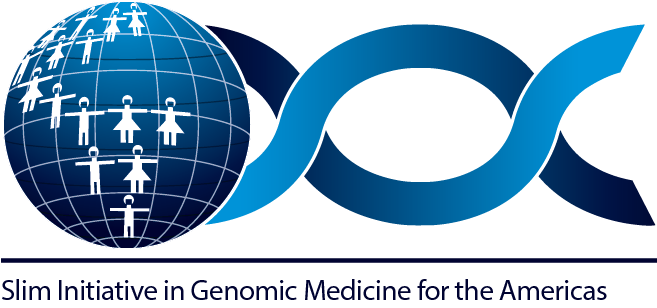 |
The SIGMA T2D consortium is an unique international partnership: Mexican and American scientists working together and training the next generation to discover the genetics of type 2 diabetes in Mexico, Latin America, and the world. The SIGMA consortium has contributed to these datasets in the T2D Knowledge Portal:
|
SIGMA T2D Consortium Members
As part of its mission to transform the health of the people of Latin America and the world, SIGMA collaborates with a host of partner institutions, including:
- The Broad Institute (US)
- Massachusetts General Hospital (US)
- University of Southern California (US)
- Instituto Nacional de Ciencias Médicas y Nutrición Salvador Zubirán (Mexico)
- Instituto Nacional de Medicina Genómica (Mexico)
- Instituto Nacional de Salud Pública (Mexico)
- additional academic institutions in the US, Mexico, and other countries, including Spain and Norway
About SIGMA T2D
In 2010, the Carlos Slim Foundation and the Broad Institute came together to launch the Carlos Slim Center for Health Research at the Broad Institute. This unprecedented partnership aims to ensure that Latin Americans benefit from the genomic revolution by:
- promoting wider access to genomic medicine in Mexico and Latin America by supporting discovery programs that focus on health problems with particular relevance to the region, and leverage its unique population genetics; and
- enhancing genomic research capacity in Mexico through training of scientists and encouraging the development of genomic diagnostics and therapeutics in Latin America.
That same year, the center launched the inaugural phase of the Slim Initiative in Genomic Medicine for the Americas (SIGMA). In this 3-year phase, Broad scientists worked closely with Mexican colleagues to systematically identify genes underlying cancer, diabetes and kidney disease and to build capacity in Mexico in genomic medicine. In 2013, the Carlos Slim Center for Health Research launched the second phase of the collaboration, known as SIGMA II, to leverage the genetic discoveries from the first phase of the project, with a focus on translating these discoveries into clinical impact.
One major research focus for SIGMA is type 2 diabetes (T2D), one of the most common diseases in Mexico, with an incidence higher than the global rate. The SIGMA project set out to systematically identify the genetic risk factors that contribute to this disparity, and translate those findings into improved methods of diabetes treatment and prevention. In the first phase of the project, SIGMA scientists sequenced and characterized more than 10,000 tissue samples from Mexican and Mexican Americans. This unprecedented analysis led to the discovery of the first identified common genetic variant shown to predispose Latin American populations to the disease. This finding provides unique biological insight into T2D and may present opportunities for therapeutic research and development. Going forward, SIGMA is focused on completing the genetic analysis of T2D in Mexico, and translating this knowledge into more effective new approaches to prevention and treatment.
The consortium has also built a worldwide resource that contains genetic data from SIGMA projects alongside data from other genetic studies of type 2 diabetes. Scientists can use these data to test hypotheses and investigate potential drug targets.
